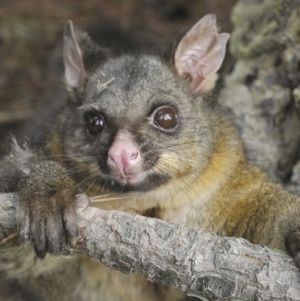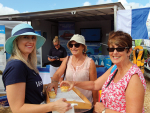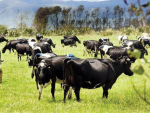TBfree New Zealand has joined forces with Northland Regional Council to warn people about the disease risk of illegally introducing wild pigs and deer into the region.
Pigs can carry bovine tuberculosis (TB) and spread the disease to other wild animals, particularly if people do not correctly dispose of pig heads and offal. Possums and ferrets scavenging on this material may become infected and spread TB to domestic cattle and deer, threatening Northland farmers' livelihoods.
Northland Regional Council biosecurity senior programme manager Don McKenzie says the illegal release of wild pigs and deer could harm both the regional economy and environment.
"It is an offence under council's Regional Pest Management Rules to release wild pigs and deer," says McKenzie.
"The majority of hunters are responsible and follow the rules but a minority are wrecking their own sport as a result of their illegal actions. Where we know of illegal pig liberations, or if we receive complaints from landowners, we will follow up with the aim of reducing wild animal populations in the area and prosecuting offenders."
Open offal pits can be accessed by wild pigs and also present a TB risk to other wild animals. Farmers using open offal pits to dispose of stock should take precautions to ensure wild animals cannot access them. Keeping wild pig populations low in neighbouring areas and fencing off properties and offal pits are two ways of reducing the risk of wild pigs feeding in this way.
Releasing wild pigs has the potential to undo all the hard work put in by TBfree New Zealand and the Northland Regional Council to ensure the region's wild animals remain free of the disease. The deliberate release of pigs is also an offence under the Wild Animal Control Act 1977 and the Northland Regional Council Pest Management Strategy.
TBfree New Zealand national disease manager Dr Kevin Crews says people need to consider the consequences of transporting and releasing wild pigs into areas where the wild animal population is known to be free of TB.
"The beef, dairy and deer sectors are still vulnerable to bovine TB. We are all working hard to eradicate this disease from New Zealand and the illegal release of pigs into the wild is an unacceptable risk to this objective," says Crews.
Wild pig heads and offal should be buried deep enough that the remains cannot be scavenged. People should also be aware of the TB risk when handling pig carcasses. To reduce the chance of becoming infected themselves, hunters should disinfect their knives and gear after use, cover cuts and open wounds on their hands and arms and wash thoroughly after cutting up animals.



















